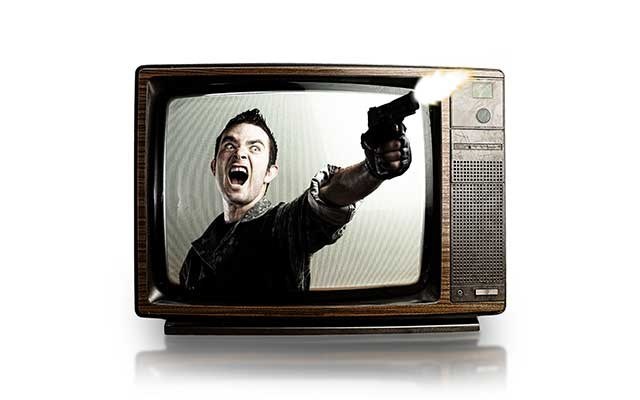With the impending launch of Grand Theft Auto V on Sept. 17 and the bizarre case of an eight-year-old shooting and killing his 91-year-old caregiver in Louisiana last week immediately after playing a previous Grand Theft Auto title, the debate over video game violence is bound to ratchet up this fall. In Australia, authorities have already banned the latest Saints Row title, and there's a good chance they'll apply the same blanket ban to GTA V.
It's an interesting debate, and one we simply can't afford to get wrong. The massacre of schoolchildren and teachers in Newtown Connecticut last year by Adam Lanza, who was a video game enthusiast among other things, has underlined the pressing need to clearly establish what kind of a role video games might play — if any — in glorifying guns and murder, desensitizing young people to violence, and breeding angry outcasts. Not so games can be banned, but because some kind of clear evidence one way or another could have an impact on the way games are marketed and sold, the way parents are involved as buyers of games, the way consoles handle parental controls and how game studios should approach the topic of violence.
Most core gamers are offended by the notion that games are even partly responsible for these outrages. They'll point their fingers at lax gun laws, poor parenting, violence on television and in the movies — anything but video games.
They'll bury you in statistics, like the numbers of games sold versus the number of these incidents. They'll wear you down with wordy arguments over correlation versus causation. They'll point out all the mass murders that occurred before video games, or where video games were later proved not to be a factor.
And they'll be right about those things. But I tend to think that gamers are fooling themselves the same way gun owners fool themselves when these horrors happen, because it's more convenient for us to deny the facts, shout down the messenger and keep playing. Nobody wants to imagine the things we love can be evil in the wrong hands because that would mean that we would have to do something about it, and the logical conclusion might be to take those things away.
That would seem unfair in a world where violence gets a pass on television and on movie screens, although it doesn't take a psychologist to see the difference between watching violence and actually doing it repeatedly for fun. Movies and televisions sometimes do show the consequences of violence: people in pain, the anguish of loved ones, somber funerals. What would GTA and other violent games be like if the people you hit with cars or bullets cried out in real pain, if children walked the virtual streets as well as gang members and prostitutes, or if there were actual consequences to your actions other than losing your guns and some of your money?
In my view, video games are not wholly responsible for any of the violence — far from it. If I had 10 fingers to point then I would point five of them at the gun lobbies, three at parents, one at society and our failure to create empathy and worth in children, and to recognize and treat mental illnesses, and one finger at the entertainment industry: a broad category that includes movies, television and video games.
Games are escapist entertainment, but that doesn't change the fact that I've had pre-teen kids swear at me and threaten my life after killing them in Halo, or that I've heard more homophobic, racist and misogynistic slurs than I care to remember. Behaviour that would get any kid sent to a school psychologist and any member of society a trip to the police station to answer charges for uttering threats is commonplace.
The reality is those kids shouldn't even be playing these games, much less playing against me online. Halo 4 is rated "M" for Mature, which means that it's only really suitable for kids 17 and older.
I think some kids can handle it at a younger age, but a lot of the kids I encounter are clearly not ready for it — not because it's violent necessarily, because there's no blood or sexual content in Halo, but because killing others is the whole point once you get online, and the more you kill the better you do in most of the online modes. Getting killed over and over, or losing your weapon or vehicle can be a frustrating experience, and can make some people angry.
All that said, I am looking forward to playing GTA V one day. The voice acting is always great, the missions are diverse and entertaining, there's always great music and fun Easter eggs to explore and the online component looks amazing.
But I also would never buy this game for anyone who was younger than the rating recommends, just like I'd never take a kid to a restricted movie. There are lots of great games out there that are perfect for teens and preteens, and yes, some of them each teach empathy.




